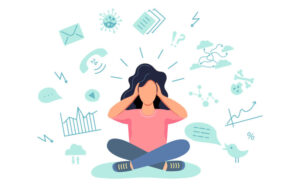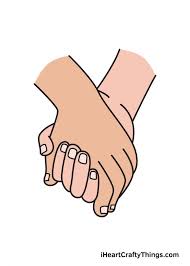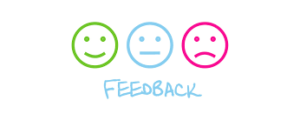Week 1: January 10th
In this first class, we started off by talking how in this class, it is like we are all members of a staff. We then reviewed the syllabus and went over what this class would entail. We broke off into smaller groups were we had to summarize our first few assignments, then met again in our large group to share the key details of each assignment. This was a huge relief, as the syllabus at first glance looked very overwhelming.
Once all questions were answered regarding our assignments and this class, we moved on and began doing a poll guru. This gave us a bit more insight on the class and what assessment really is. It also let us know what areas people felt most strong in, and what areas we as future teachers could improve on. As classed wrapped up, we talked about the assessment on assessment quizzes that we will be taking, and how it is important that we reflect on the growth we see and feel throughout this semester.

Week 2: January 17th
In this weeks class I felt a lot more comfortable with the class content and the syllabus. It helped talking through the syllabus with my classmates and re going over the syllabus. I also think it is super helpful when we got to see the prospective of what it looks like from a teachers view.
We had our first learning circle today and it was a great to hear from my peers about how they viewed the book and their perspective. My biggest take aways from our first learning circle was we discussed that as teachers, we need to let students take their time so they can further explore and understand the topics on their own. By allowing students to explore topics on their own, it makes them more involved and engaged in their own learning. We also talked about how assessment and evaluation mean different things. Assessment focuses on looking at a child’s achievements and their progress, whereas evaluation focuses on making decisions based on what the teacher has collected from students. We also discussed how important it is to ask questions, by asking questions you are gaining a deeper understanding and growing your knowledge. Overall this class made me feel more confident and excited for what’s to come this semester.

Week 3: January 24th
This week we started by doing our learning circles where we discussed chapters 3 & 4. The biggest take away was how when there is set expectations and an outline in place, students are more likely to be engaged. Having this in place makes students less anxious. It is also very important that as teachers we are on top of going in depth and to check in on students and to keep parents in the loop so they know what is happening in the classroom and how their child is doing. It is important to clear and concise communication with everyone and our colleagues because it only benefits yourself, but also them. Another big takeaway was that a classroom is filled with many different individuals and personalities and as teachers we have to make sure we are using positive language and ensure we don’t use negative words like “fail”.
We also had a class discussion on blooms taxonomy and how it is a very useful tool to use that consists of 6 steps. These 6 steps include remember, understand, apply, analyze, evaluate, and create. The activity sheet we did helped put the blooms taxonomy into perspective for me and helped me see how to fully execute it.

Week 4: January 31st
This week we focused on the topic of co-creating rubrics and collaboration. By allowing students to be involved in the creating and assessment process, it gets them more excited and they feel like they can be apart of the creation of an assignment and it can cause less stress when it comes to how they will be graded. The expectations are set and they know how much they will need to do in order to meet those expectations. I think it is not only important to collaborate with students, but also collaborate with our fellow teachers. It is good to get their input on how they may assess different assignments and how they may adjust the assessment process when it comes to different students abilities.
This made me relate to my pre-internship because this past semester was my first time creating a lesson plan and form of assessment. When first creating it, it can be stressful, but after talking to my teaching partner and co-op teacher, it was a relief once I had their input. I think co-collaboration will be easier when I have my own classroom and group of students, so I am excited to try.
From this weeks chapters, we discussed how students learn in very different ways, so when teachers go to collect evidence of learning, it can be harder to assess them. Especially when it comes to writing a paper, most students can express what they have learned better when they can orally do it, and that allows for them to share the connections they have made. We also discussed how students can also assess by just observing what is going on and how much a student is comprehending. In chapter 6, we talked about how when teachers involve students in setting their criteria, they learn more about what the students already know.

Week 5: February 7th:
My biggest take away from this weeks class was our learning circle discussions. Today we talked about the acronym “WET”. WET stands for W: working together, E: everything has a place, T: thinking and acting safely. We said how it is important for teachers to follow this acronym and pass it onto students as is it important for students to work together, and to collaborate to create a respectful classroom. We also discussed the importance of students complimenting each other in a positive way because it helps build confidents in the students abilities and overall in the classroom.
In class, we discussion peer assessment and their was some mixed feelings on the topic. I believe peer feedback can be good due to the fact that they are on the same level and peoples thoughts may be alike, but at the same time it can be hard for some students to review feedback given to them by a peer, and sometimes it can be viewed as embarrassing. Overall I think peer feedback and assessment can be beneficial if used in a positive way.

Week 6: February 14th:
We started class today by finding out who our partners would be for our peer reviews. We then went into our learning circle groups and discussed our chapters from this week. Some of the biggest takeaways from this week was about communication and how important it is to have good communication in not only your classroom, but also with the school as a whole. It is also so important to be able to communicate with all students but also their parents so they can know what the children are learning and how their child is doing in and out of the classroom setting. We also touched on the topic of goal setting and how important it is to meet one on one with students and learn what they expect to get from the class and help them set goals to meet their learning expectations. The other main topic we really dove deep on from these chapters was evaluation. This chapter really put into perspective the idea of co-collaboration between students and the teacher. By doing this, you not only outline your expectations when it comes to assignments and assessment, but you also get to involve their thoughts and opinions which can help them grow a deeper understanding.
We then had a class discussion on how to give feedback and how to make it sound positive. Sometimes it can be hard to give negative feedback, especially when it comes to people you know. As long as you deliver it in a positive way, people can take that constructive criticism and improve. We then met with our partners and peer reviewed our papers. It was nice to talk to someone and go over our papers to make sure we are on the same track.

Week 7: February 28th:
This weeks class was very engaging and fun. Some of my biggest take aways from this week were the group discussions we had on on whether you agreed or disagreed with the statement given. It was very interesting to see other peoples perspectives and opinions on the questions that were given to us, and we really got to see the impact that certain things in our society had over us and our discissions we make.
We then talked about the dialogue paper and how it will work for next weeks class. Being able to read seven other peoples papers will give me a better look on how all different kinds of teachers view assessment and could possibly alter my views as well. This assignment will also help with my personal assessment goals, as I get to go through and read my peers papers.
Lastly I also enjoyed when we broke off into our breakout rooms and had to number off what we considered to be most important to least important in the classroom. One of the questions that really stood out to me was “should attendance be considered in a final grade”. I have a lot of opinions on this topic because when it comes to elementary school students, the parents or guardians are the ones that have to give their child a ride to and from school everyday. Even if students take the bus, the parent or guardian still has to help them get ready for the day and ensure they have everything they need. Children have no control over when they will arrive at school and there are also a lot of factors that can hold children back from coming to school that are out of their control. Even when it comes to students in high school, you never know what a person is struggling with or what factors in their lives may prevent them from attending school. I do however believe that students receive their best education at school and it is important to attended as regularly as they can so they can keep caught up with the class load. Overall I believe that as long as the student is getting their work done and in on time, attendance should not be considered in the final grade as many factors go into a students attendance.

Week 8: March 6th:
This weeks class was focused around our dialogue papers. We had to send our papers to seven of our classmates in the class so they could go over our papers and mark them. I received all seven papers of the papers I was supposed to mark, and I really enjoyed getting to go over other peoples papers. It was so interesting so see the varying ideas that some teachers have and the different ways that they view assessment. Once we had read over the papers, there was a document that we had to fill out, which asked questions about if the paper followed APA format, if the paper was in the correct order, if there were any grammatical errors, and if the paper made sense. Lastly we had to self-assess our own papers. Getting to read through my paper again let me pick out any spots that I could have improved on and let me decide what mark I think I deserved. I like the way we did this grading system, and it is something I would use in my future classroom. I am however a little nervous to see how my classmates graded my dialogue paper, and what my final grade will be.

Week 9: April 3rd:
Today was our first day back after classes. Although internship was amazing and such a great experience and learning opportunity, it was nice to be back in class. We start class by going over the weekly agenda, which I find is very helpful because it gets me prepared for class. We then did a Poll Guru about our internship. It was so nice to hear about peoples experiences, and the different ways that they saw and used assessment in the classroom. There were so many creative ideas that were presented to the class that would be great resources to use in your own classroom one day.
We then talked a little bit about our dialogue papers and we received our grades back from our peer marking that we did. I was happy with the grades I received and I am excited to go over them in my interview. To wrap up the class, we had a discussion about our interviews that will be taking place at the end of next week to ensure that we are all ready for them.
